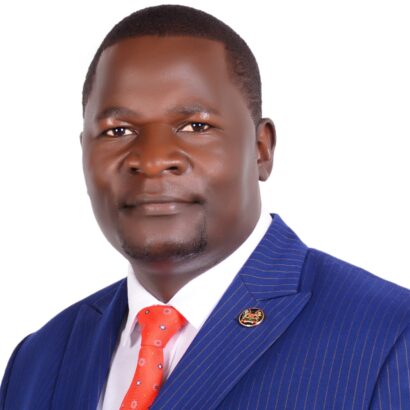By Hon. Kennedy Ondiek
The recent discussions surrounding the potential elimination or discontinuation of Kenya’s National Government Constituencies Development Fund (NG-CDF) have sparked significant debate among policymakers, economists, and the general populace. It is my considered opinion that such a move is both untimely and premature, with potential ramifications that could challenge the very pillars of our economic and governance frameworks.
Legal Context
Legally, the NG-CDF is enshrined in our statutory framework, acting as a mechanism to ensure equitable distribution of national resources at the grassroots level. The fund is critical in actualizing Article 174 of the Kenyan Constitution, which aims to foster national unity by recognizing diversity and enhancing self-governance by the people. The NG-CDF has been instrumental in fulfilling the constitutional mandate of decentralizing resources, making it a cornerstone of Kenya’s efforts to devolve power and development.
Any proposal to eliminate or amend the existing structure of the NG-CDF demands meticulous legal scrutiny to ensure compliance with constitutional principles and the equitable distribution mandate. The National Assembly and other stakeholders must take a careful approach, examining the broader implications for the devolution process, which is at the heart of Kenya’s governance architecture.
Furthermore, the judiciary has had mixed rulings on the constitutionality of the NG-CDF, reflecting the complexity and sensitivity surrounding its existence. While concerns about the separation of powers—particularly the involvement of MPs in managing funds—are valid, an abrupt decision to eliminate the NG-CDF could create a legal vacuum that disrupts the development agenda. As legislators, it is our duty to engage in transparent consultative processes, ensuring that the law serves the populace fairly and justly. Abrupt changes could lead to legal challenges, destabilizing local governance structures, and negating the gains of the past decade.
Economic Considerations
Economically, the NG-CDF has been a crucial vehicle for development, funding projects ranging from education, security and health to infrastructure across various constituencies. Its presence has directly contributed to improving access to quality education, construction of security infrastructure, and supporting quality healthcare through NHIF (now SHIF). Without the NG-CDF, many of these essential services would remain underdeveloped, especially in regions where alternative funding sources are limited or absent.
The removal of the fund could result in significant economic setbacks, particularly in marginalized areas where the fund acts as a critical financial inflow. These constituencies, often neglected by other government projects, rely heavily on NG-CDF allocations for essential infrastructure and services. The economic disparity between constituencies could widen, undermining national development goals and deepening regional inequalities.
Furthermore, without the NG-CDF, the burden of financing development projects would shift heavily to county governments, which already face challenges with resource allocation and management. Counties, struggling to manage the distribution of limited resources, may be ill-equipped to fill the void left by the NG-CDF. This could amplify inefficiencies, slow down the rate of development, and adversely affect local economies. It could also exacerbate corruption and mismanagement, as counties grapple with additional responsibilities without the capacity to manage them effectively.
Governance Implications
From a governance standpoint, NG-CDF has instilled a sense of accountability and participation among constituents. The fund allows communities to prioritize their own development needs through the Ward representatives in the constituency committees, leading to localized decision-making and empowerment. It fosters a participatory democracy where constituents have a say in developmental priorities, thereby bridging the gap between elected officials and the electorate.
The disbandment or restructuring of the NG-CDF must consider these governance gains. A key strength of the NG-CDF is its ability to empower local communities to identify their most pressing needs and hold their leaders accountable for delivering results. Eliminating the fund without a sustainable replacement mechanism risks disenfranchising these communities, eroding the trust that has been built over the years between the public and their representatives.
Moreover, the fund empowers Members of Parliament to spearhead development initiatives, thereby reinforcing their roles as both oversight officers and custodians of local development. The NG-CDF has provided MPs with a direct avenue to address immediate and pressing issues in their constituencies. Removing this aspect without a robust replacement mechanism could weaken the governance framework, rendering MPs less effective in addressing the urgent and specific needs of their constituents.
Conclusion
While there are legitimate concerns regarding transparency and efficiency of the NG-CDF that need addressing, just like in any other government initiative, its discontinuation without a viable alternative could disrupt the socio-economic fabric of our nation. The legal, economic, and governance benefits of the NG-CDF are too significant to be cast aside lightly. The challenge we face is not whether to eliminate the fund, but how to reform it to enhance accountability, align it with the Constitution, and address concerns of inefficiency and potential misuse.
A phased approach, with piloted reforms and structured stakeholder engagements, would ensure that the core objectives of the NG-CDF are preserved while addressing any inefficiencies. Such a reform agenda would not only safeguard the gains made but also guarantee that any changes introduced are sustainable and practical.
As we contemplate the future of this fund, let us do so with caution, deliberation, and a commitment to the welfare of all Kenyans. The NG-CDF remains an essential pillar of localized development, and its fate should be decided through thoughtful analysis, not hasty action. Reform, not elimination, is the path forward.
The writer is the former Homabay County Legislator, a lawyer and UDA Coordinator, Nyanza Region
Want to send us a story? Contact Shahidi News Tel: +254115512797 (Mobile & WhatsApp)


